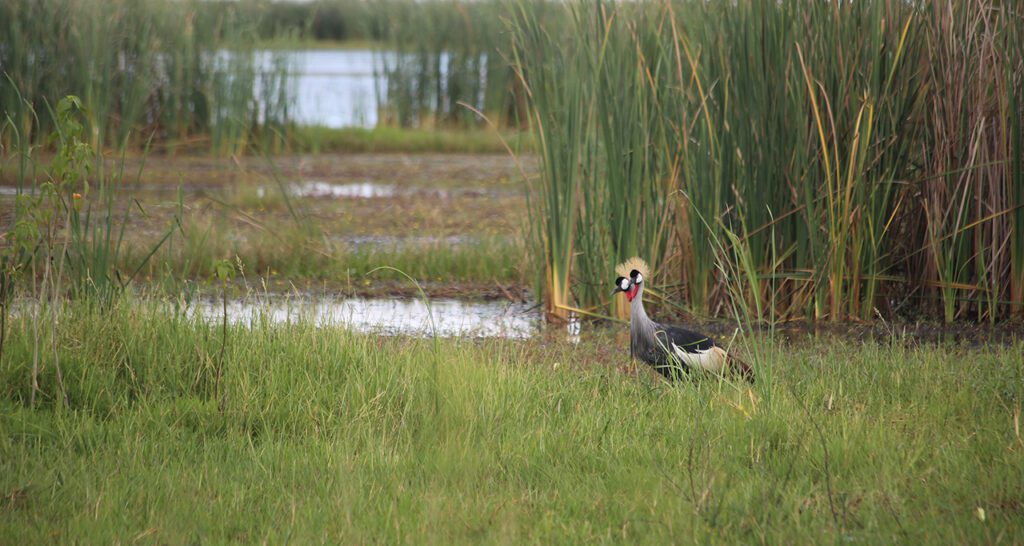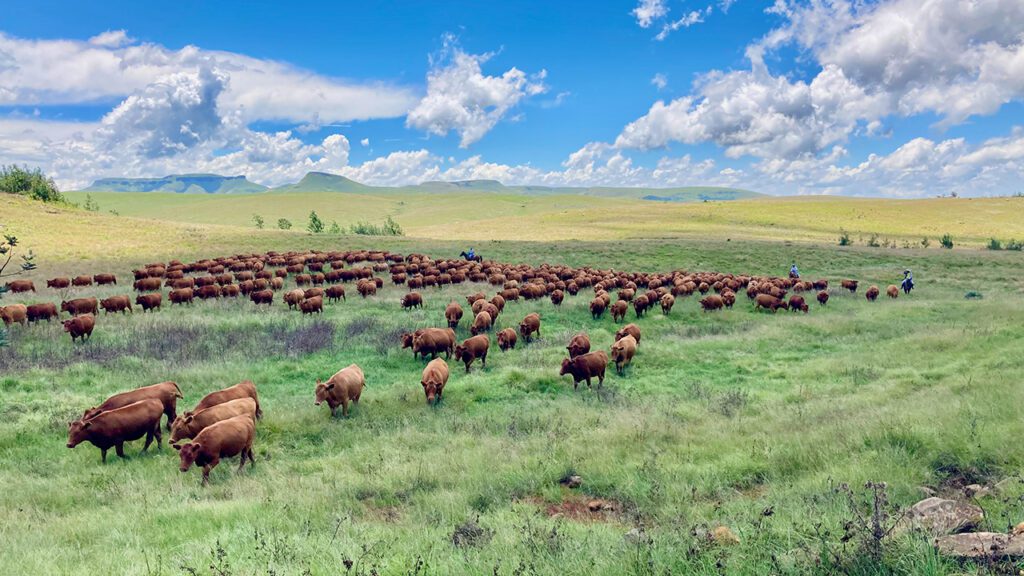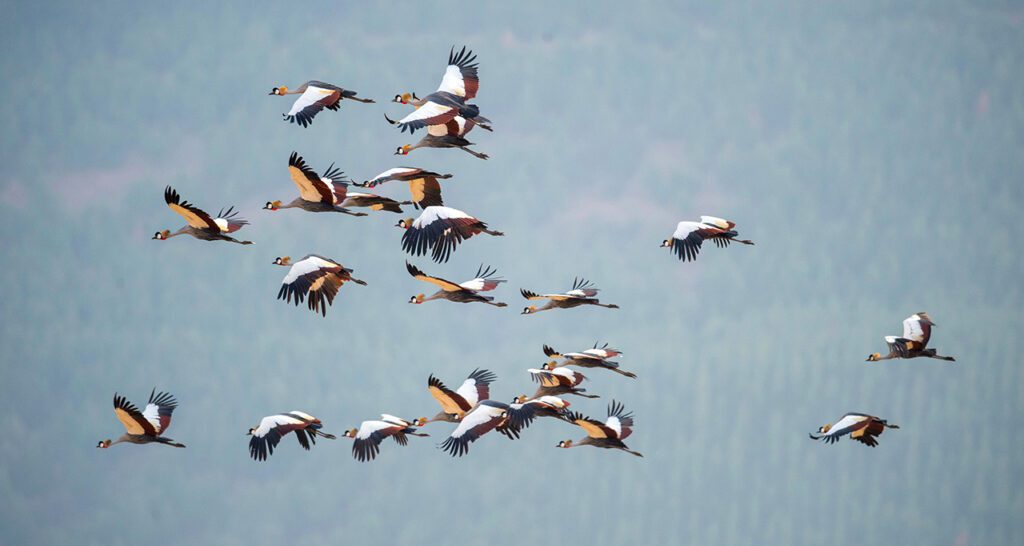Community Radio Campaigns Raise Awareness on the Kafue Flats
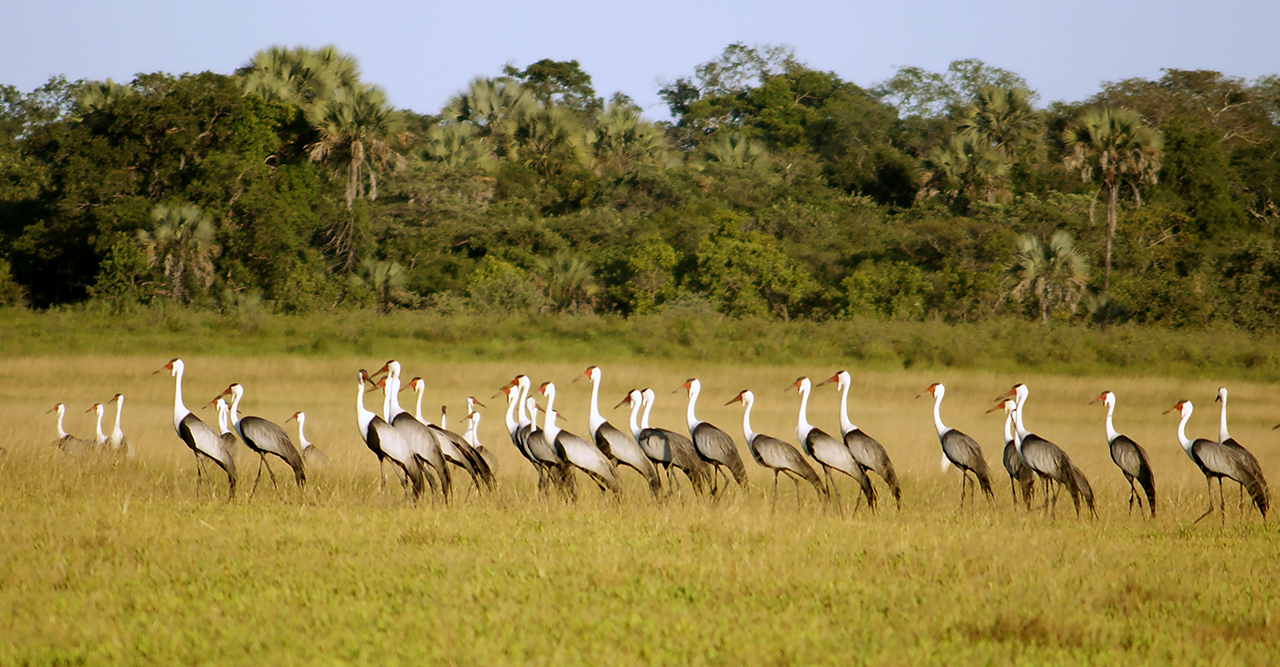
Wattled Cranes flock together on the Kafue Flats in Zambia. Griffin Shanungu
With generous support from The Elephant Charge, the International Crane Foundation in Zambia recently conducted a series of community radio awareness campaigns to raise understanding and appreciation of the Kafue Flats ecosystem. Through partnerships with community radio stations in Monze, Mazabuka, and Mumbwa Districts, the initiative aimed to promote community stewardship and environmental responsibility among residents who depend on this vital wetland landscape.
In September, the International Crane Foundation team hosted three engaging radio programs through Radio Chikuni 91.1 FM in Monze District. Each one-hour episode explored a key conservation theme relevant to the communities of the Kafue Flats, focusing on:
- Climate change adaptation, mitigation, and resilience
- The role of indigenous knowledge in sustainable natural resource management
- Ecosystem services benefits, threats, and conservation measures
What made this initiative truly special was the participation of local pupils, community leaders, and Community Resource Board (CRB) representatives as radio presenters and panelists. Their voices gave authenticity and ownership to the discussions, reinforcing the message that conservation begins within the community.
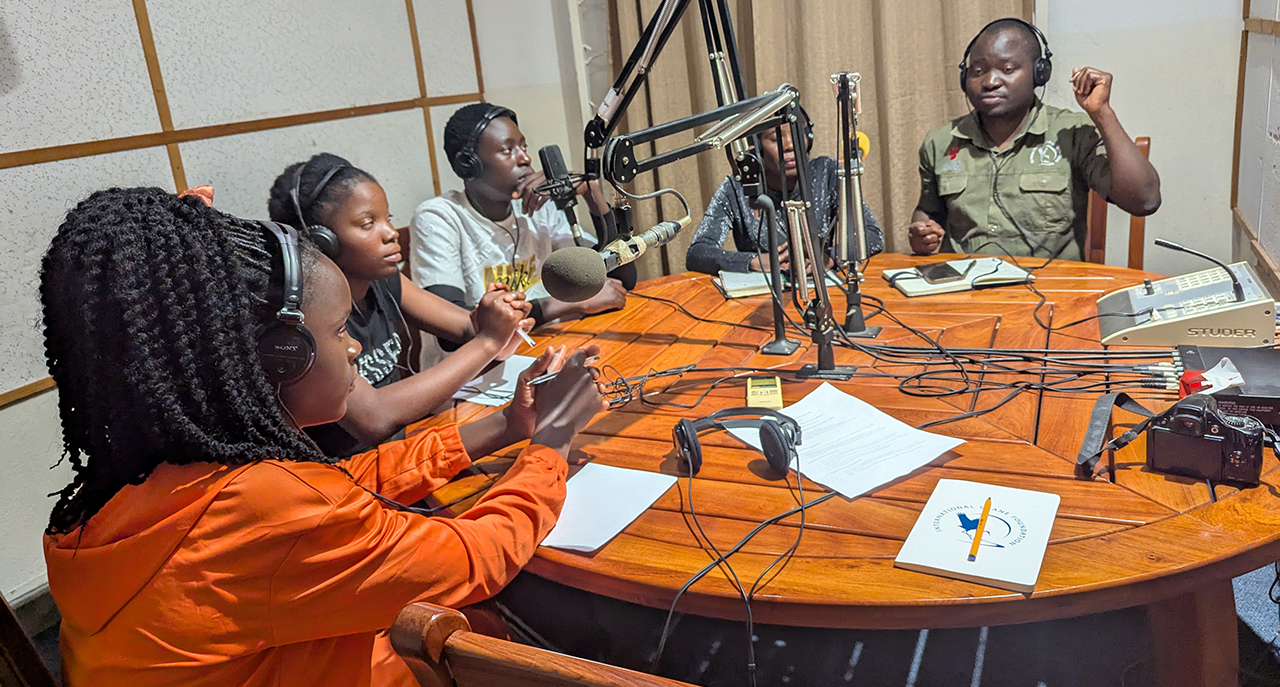
Episode 1: Climate Change – Building Resilient Communities
The first episode featured three pupils and their matron from Gonhwe Community School, who shared their inspiring efforts through their school’s conservation club. From tree planting and climate-smart agriculture to biodiversity education, these young conservation champions are already putting climate action into practice.
Listeners actively joined the conversation during the live call-in session, expressing concern about local impacts of climate change and emphasizing the need for collective community action. This dialogue demonstrated growing awareness and a willingness to adopt sustainable practices to protect the Kafue Flats.
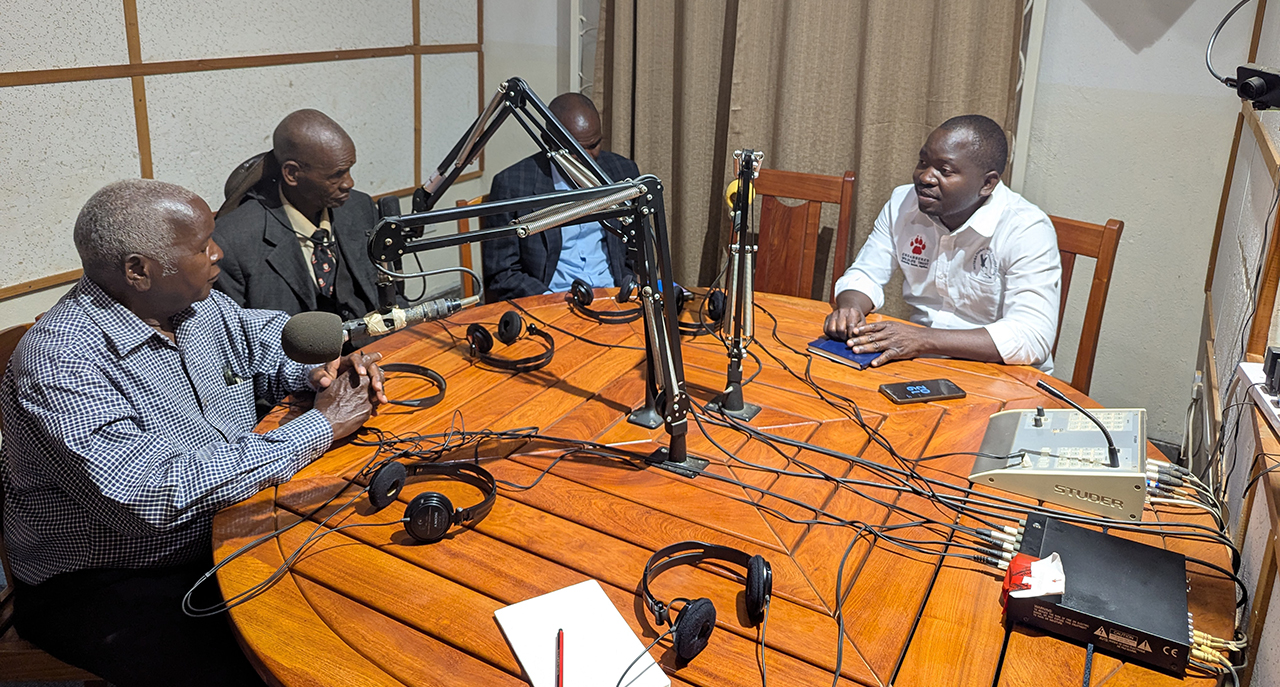
Episode 2: Bridging Local/ Indigenous and Scientific Knowledge
In the second episode, three traditional leaders (headmen) took center stage to share time-tested practices that have long supported the sustainable use of natural resources. They highlighted traditions such as sustainable fishing and hunting methods, protection of cultural sites, and organic farming techniques that maintained ecological balance for generations.
Listeners appreciated the discussion’s emphasis on combining indigenous wisdom with modern conservation science, reaffirming that sustainable management of the Kafue Flats must integrate both approaches to be effective and inclusive.
Episode 3: Protecting the Benefits of Ecosystem Services
The final episode focused on the ecosystem services provided by the Kafue Flats—ranging from water regulation and cultural preservation to wildlife habitat and livelihoods. CRB representatives discussed both the benefits and the threats facing the wetlands, such as illegal hunting, unsustainable fishing, and charcoal production.
The conversation concluded with a strong call for community education, enforcement of traditional by-laws, restoration efforts like tree planting, and greater community involvement in conservation programs. The episode sparked lively listener participation, underscoring widespread concern and commitment to protecting the Kafue Flats.
A Platform for Awareness and Action
The three-day engagement reached an estimated 9,000 people, offering a unique platform for dialogue, learning, and collective action. By including voices from diverse sectors —pupils, teachers, traditional leaders, CRBs, and International Crane Foundation staff —the program bridged generations and experiences in a shared commitment to conservation.
Through this initiative, the International Crane Foundation, with support from The Elephant Charge, strengthened local ownership of conservation efforts and inspired communities to take an active role in protecting their environment. The discussions not only enhanced understanding of the ecological importance of the Kafue Flats but also reinforced a shared vision: ensuring that this vital ecosystem continues to thrive for wildlife, environment, and people for generations to come.
